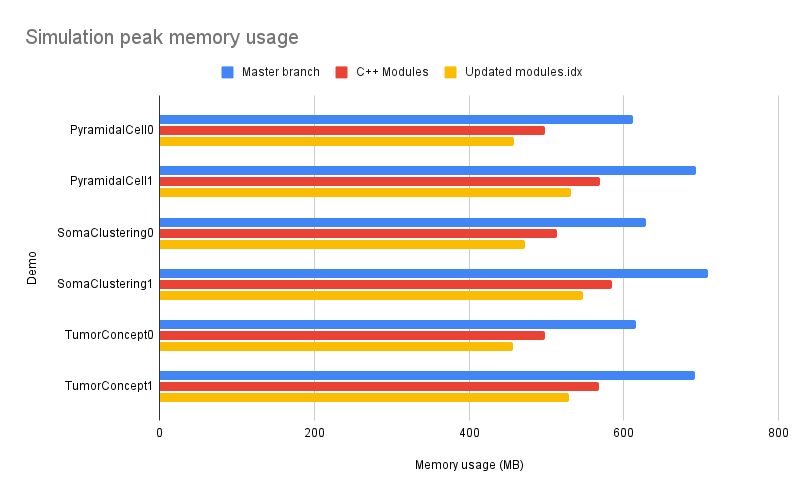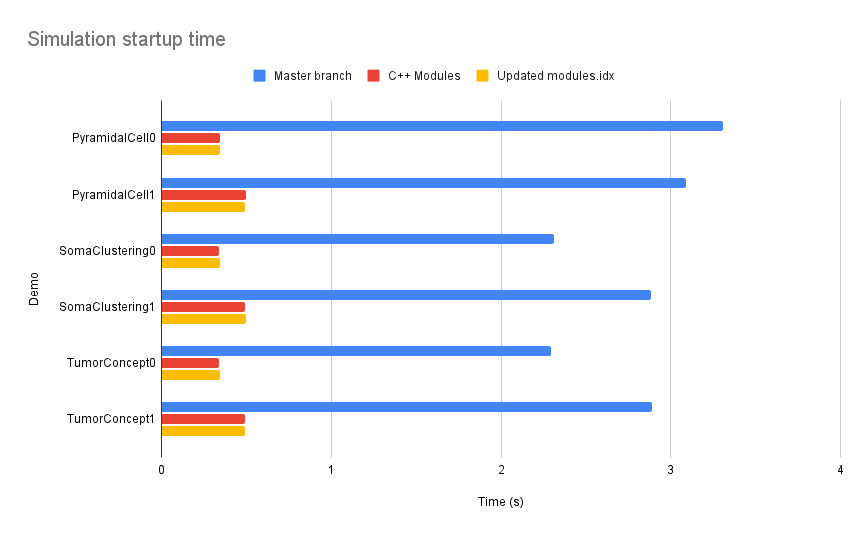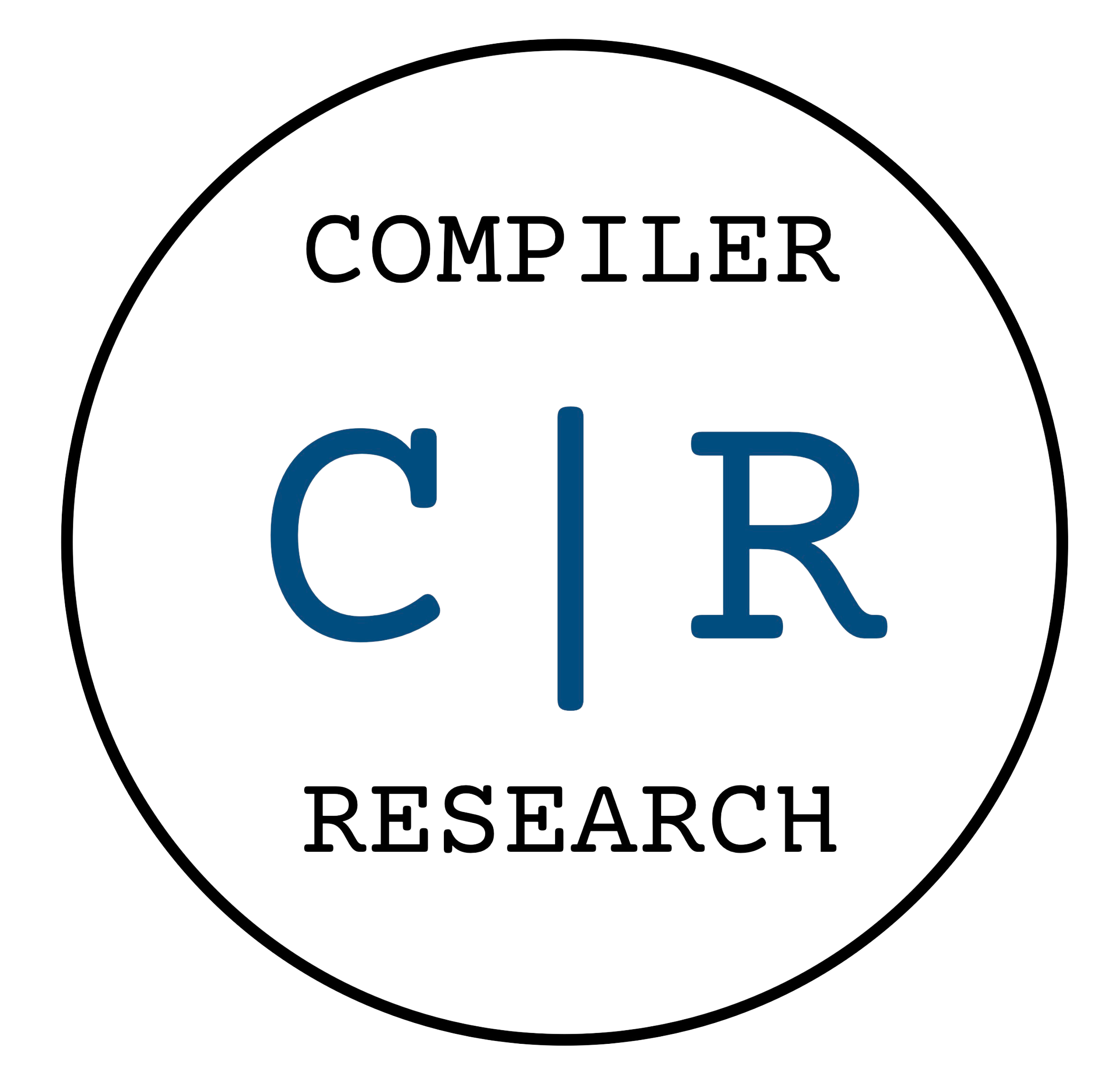Wrapping up GSoC'24: Improving performance of BioDynaMo using ROOT C++ Modules
Introduction
I am Isaac Morales, a Computer Engineering student at the University of Granada, Spain. This summer I had the opportunity to participate in Google Summer of Code 2024. My project revolved around enhancing BioDynaMo’s performance using the ROOT C++ Modules.
Mentors: Vassil Vassilev, Lukas Breitwieser.
Project overview
BioDynaMo is an agent-based simulation platform designed to facilitate complex simulations, particularly in fields like cancer research, epidemiology, and social sciences. It leverages ROOT—a framework widely used in high-energy physics—for statistical analysis, random number generation, C++ Jupyter notebooks, and I/O operations. However, enhancing BioDynaMo’s performance remains a key challenge. This is where this Google Summer of Code 2024 (GSoC ‘24) project comes into play, focusing on optimizing the platform through ROOT C++ Modules.
The Challenge: Performance Bottlenecks in BioDynaMo
BioDynaMo’s reflection system, which utilizes Cling (an interactive C++ interpreter from ROOT), experiences significant runtime performance and memory usage issues. The repeated parsing of library descriptors by Cling introduces inefficiencies that slow down the startup phase and consume excessive memory. These bottlenecks are especially evident in simulations with a low number of time steps, as a substantial portion of the time is spent on parsing rather than on actual computations.
The Solution: Integrating ROOT C++ Modules.
The primary goal of the GSoC project was to integrate ROOT’s C++ Modules into BioDynaMo to minimize these performance issues. C++ Modules offer an efficient on-disk representation of C++ code, reducing the need for repeated parsing of invariant code. By implementing these modules, the project aimed to optimize runtime memory usage and improve overall performance
What I did?:
- Reworking CMake Rules: The project incorporated ROOT and another packages efficiently using FetchContent, modifying CMake rules accordingly (e.g., PR #365 and #387, both merged)
- Replacing genreflex with rootcling: This switch was crucial to enable C++ Modules and streamline the generation of reflection information (PR #379)
- C++ Modules changes Among other things, I used automatic generation for the module map with relative paths,
modified the
selection.xmlfile to support the new dictionaries and fixed headers with missing includes (PR #385. - Updated some CI workflows I fixed some failing workflows in PR #377. Also, I did some minor changes in some flags in PR’s #378 and #367
Promising Results
The results have been promising, showcasing significant performance gains. Benchmarking revealed
improvements ranging from 18% reduction in peak memory usage with the default modules.idx to 25% with the
updated one.

Moreover, the startup phase saw an impressive 80% reduction in time, thanks to the optimized
handling of header parsing. That highlights the efficiency of C++ Modules in minimizing
Cling’s parsing overhead

As expected, the simulation time did not show an appreciable improvement. However, in the unit tests, the time was 33% lower. I believe this is because unit tests involve a lot of parsing and Cling calls.
Future Steps and Challenges Ahead
Despite these advances, several challenges remain. PR’s #365 is ready to merge and #385 needs some changes. For instance, memory leaks have been observed when using the new
ROOT_GENERATE_DICTIONARY, even with C++ Modules disabled. Additionally, the build system for individual demos has
caused compatibility issues with the main build system. Also, there is a problem with the Jupyter notebooks.
Resolving these issues and finalizing the integration of C++ Modules will be essential for ensuring long-term stability and reliability.
Looking ahead, further optimizations are planned, including potential module-based optimizations for BioDynaMo’s core components. Collaboration with the BioDynaMo team continues, with upcoming meetings scheduled to align efforts and resolve outstanding issues.
Conclusion
The integration of C++ Modules has proven effective in reducing memory usage and startup time, although some hurdles remain. Continued collaboration and testing will be crucial to fully realize the performance potential of BioDynaMo, enabling more efficient simulations for researchers in computational biology.
Acknowledges
First of all, I would like to thank Google Summer of Code for the opportunity to work on this project. But above all, my most sincere gratitude goes to Vassil. He has been an exceptional mentor, always attentive and ready to help with anything I needed. His encouragement during weekly meetings and his constant support in all areas, from soft skills to technical expertise, have truly inspired me and earned my admiration.
Many thanks also to the BioDynaMo team: to Lukas Breitweiser for guiding me through the final stages and helping me understand the complexities of BioDynaMo; to Tobias Duswald for reviewing my PRs and assisting me in analyzing my results; and to Fons Rademakers for his support when I faced challenges compiling ROOT in debug mode.
Lastly, a special thanks to my colleagues from Compiler Research, particularly David, Atel and Maksym, whom I had the pleasure of meeting at the Fourth MODE in Valencia, for making this experience unforgettable.





